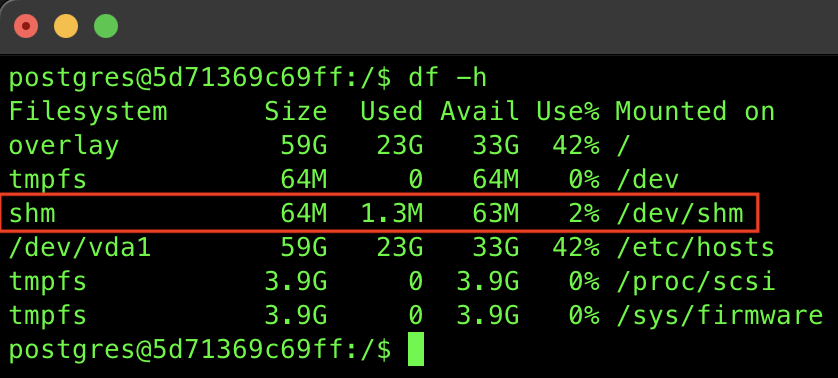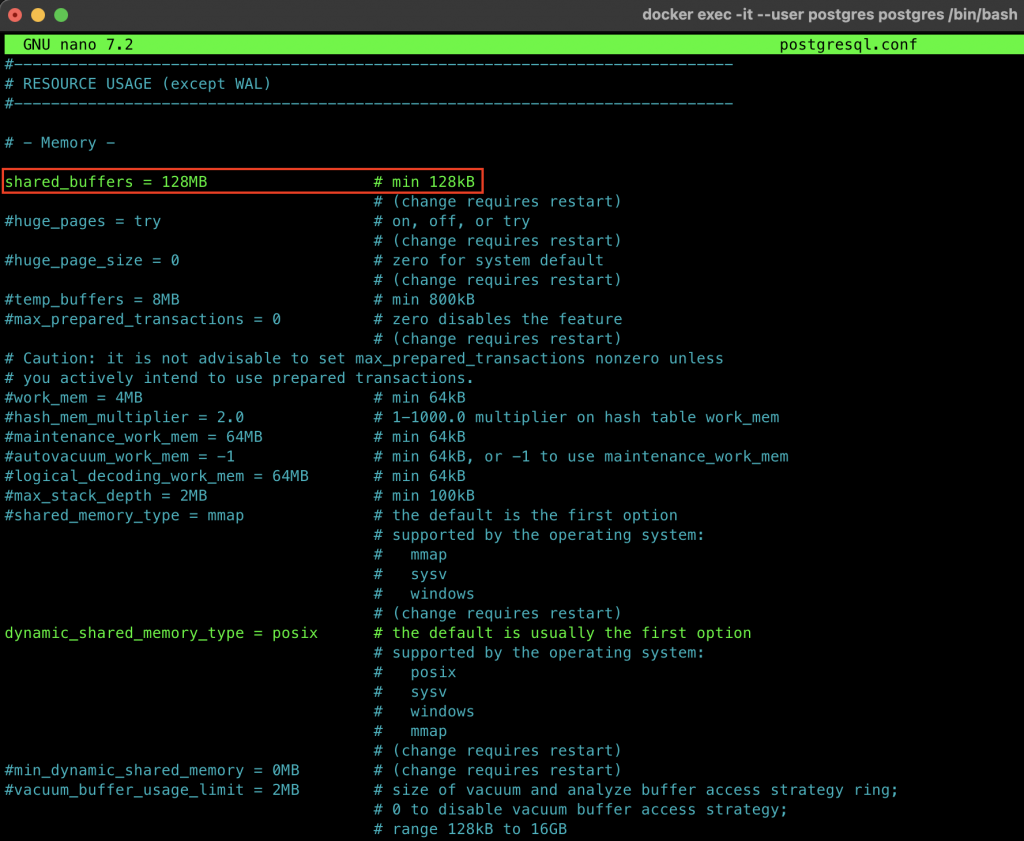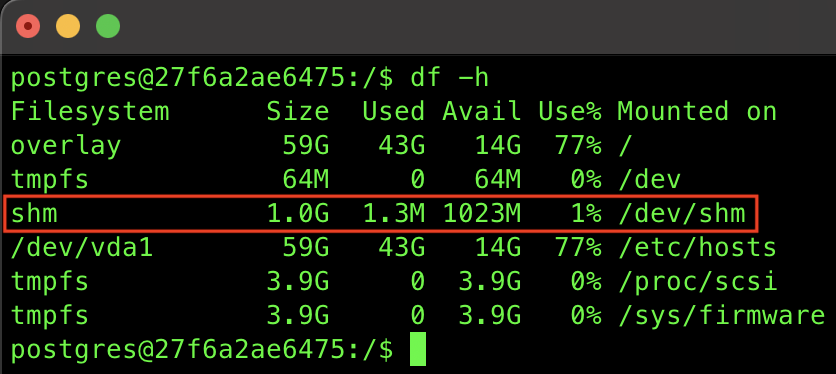When running PostgreSQL in Docker, encountering the error “could not resize shared memory segment” can disrupt your database operations. This issue typically arises because PostgreSQL depends heavily on shared memory for tasks such as caching and inter-process communication. The error often occurs due to insufficient shared memory allocation in the Docker container, or misconfigured PostgreSQL settings. In this blog posting, I will explore the root cause of this error and I provide a detailed solution to help you resolve it.
Understanding the Problem
Docker containers, by default, allocate only a small amount of shared memory, typically 64 MB. PostgreSQL may require more than this depending on your workload and configuration. When the shared memory limits are exceeded, PostgreSQL throws the error about resizing the shared memory segment. This can happen for several reasons:
- Docker’s default shared memory allocation is too small for PostgreSQL.
- PostgreSQL is configured to use more shared memory than is available in the container.
Over the last few days I have done a lot of work with reporting style queries – in combination with larger tables – in PostgreSQL, and at some point in time I got the following error message, when I tried to execute a larger query:

The problem here is that PostgreSQL needs more shared memory than the Docker Container is able to provide. By default, the Docker Container has only 64 MB of shared memory available, which you can check with the command df -h through the command line – when connected to the Docker Container:

But in a default configuration, PostgreSQL is allowed to allocate up to 128 MB of shared memory, as you can see in the configuration file postgresql.conf:

Therefore, you will get that error message, when PostgreSQL tries to allocate more than 64 MB of shared memory in the Docker Container.
Solving the Problem
The simplest and most common fix for this error is to increase the shared memory allocated to the Docker container. You can do this using the –shm-size flag when starting a container. For example, you can allocate 1GB of shared memory with the following command:
docker run --name postgres -e POSTGRES_PASSWORD=passw0rd1! -p 5432:5432
--shm-size=1g -d postgres
If you’re using Docker Compose to manage your containers, you can increase the shared memory allocation by adding the shm_size property to your docker-compose.yml file. Here’s an example configuration:
services:
postgres:
image: postgres
container_name: postgres-container
environment:
POSTGRES_PASSWORD: mysecretpassword
shm_size: '1g'
ports:
- "5432:5432"Summary
The “could not resize shared memory segment” error in PostgreSQL is a common issue when running the database in Docker containers with default memory limits. By increasing Docker’s shared memory allocation, or optimizing PostgreSQL’s memory settings, you can resolve this issue and ensure stable database performance.
With these steps, you should be well-equipped to handle this error and maintain a robust PostgreSQL setup in your Docker environment.
Thanks for your time,
-Klaus